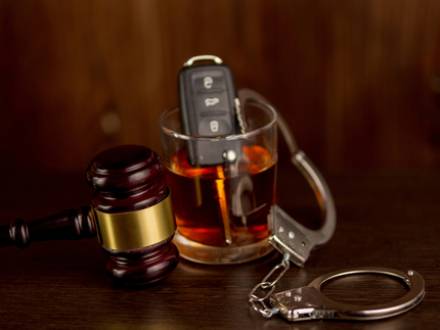DWI vs. DUI in Texas: What’s the Difference?
 If you have been pulled over in Texas and accused of driving after drinking or using drugs, you may hear the terms DWI and DUI used interchangeably. But under Texas law, they are not the same thing. Knowing the difference is important because these charges carry very different penalties, defenses, and long-term consequences.
If you have been pulled over in Texas and accused of driving after drinking or using drugs, you may hear the terms DWI and DUI used interchangeably. But under Texas law, they are not the same thing. Knowing the difference is important because these charges carry very different penalties, defenses, and long-term consequences.
At The Dameron Law Firm, we help people across Tarrant County who are facing charges of Driving While Intoxicated. With more than two decades of criminal defense experience, we know what is at stake when your freedom, license, and record are on the line. Call our Keller, TX DWI defense lawyer at 817-222-0624 now.
What Is a DWI in Texas?
Under Texas Penal Code § 49.04, a person commits the offense of Driving While Intoxicated (DWI) if they drive a car or other motor vehicle in a public place while intoxicated. A driver is considered legally intoxicated if they have a blood alcohol concentration (BAC) of 0.08 percent or higher, or if alcohol, drugs, or another substance causes them to lose the normal use of their mental or physical faculties.
The penalties for DWI in Texas are serious. A first-time offense can bring up to $2,000 in fines, up to 180 days in jail (with at least three days served as mandatory), a driver’s license suspension of up to one year, and requirements such as probation or DWI education classes. Repeat offenses, cases involving high BAC levels, or situations where a child passenger was present can result in far harsher penalties, including longer jail time, steeper fines, and felony charges.
What Is a DUI in Texas?
Driving Under the Influence (DUI) is a separate charge under Texas law, and it only applies to drivers who are under 21 years old. Texas has adopted a zero-tolerance policy for minors and alcohol, which means that if a driver under 21 has any detectable amount of alcohol in their system while operating a vehicle, they can be charged with DUI. Unlike DWI, prosecutors do not have to prove that the driver was impaired or had a BAC of 0.08 or higher.
DUI is typically charged as a Class C misdemeanor. The penalties for a first-time offense may include up to $500 in fines, community service, license suspension, and mandatory alcohol awareness courses. While these penalties may not sound as severe as those for DWI, a DUI still creates a criminal record. That record can affect college applications, scholarship opportunities, and future employment.
Key Differences Between DWI and DUI
The critical distinction between DWI and DUI lies in who can be charged and what legal standard applies. Adults can only be charged with DWI, while minors under 21 may face DUI charges for even minimal alcohol consumption. DWI is treated as a more serious offense, often as a Class B misdemeanor that carries the possibility of jail time, probation, and high fines. DUI, on the other hand, is generally considered a Class C misdemeanor, but it still has lasting consequences because of the permanent record it creates.
Call a Keller, TX DWI lawyer today.
Whether you are facing DUI or DWI charges, the consequences extend beyond the courtroom. For minors, even a single DUI conviction can jeopardize future education and employment opportunities. For adults, a DWI conviction can lead to the loss of driving privileges, expensive fines, jail time, and the burden of carrying a criminal record that never disappears. Understanding the difference between the two charges is the first step in building a defense that protects your future.
If you are facing charges for DWI, you need an attorney who understands Texas law and knows how to challenge the case against you. Call the experienced attorney at The Dameron Law Firm at 817-222-0624 today for a free consultation. Our Tarrant County DWI defense attorney Craig Dameron has over 20 years of experience protecting clients’ rights, licenses, and futures, and we are ready to fight for you.

 817-222-0624
817-222-0624







